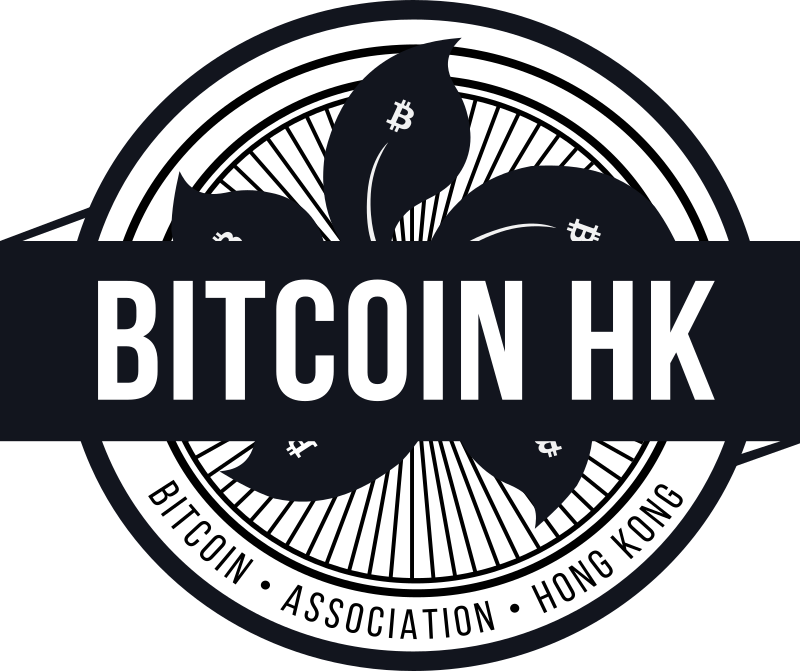Leo Weese is a co-founder of the Bitcoin Association of Hong Kong and a key figure in the city’s crypto community. He was born in Italy but grew up speaking German and encountered Bitcoin in 2011. In 2012, while studying statistics in Hong Kong, he began to learn how Bitcoin works and was fascinated by it. He is still arranging Bitcoin events and works in the information security industry.
Interview Date : 31st August 2020

The Start of my Hong Kong Journey
I moved to Hong Kong 9 years ago to study statistics. This was also around the time I first heard about Bitcoin. I did not own any Bitcoin, and I did not have a wallet either. I tried to get hold of some Bitcoin, but I was not technically competent enough at that time. I tried 2 times, but I failed. I even tried to look it up in Vienna, in Austria, where I lived before moving to Hong Kong. Still, I was unable to get some. It seemed like a fun thing, and it was something that I wanted to talk more about.
During my studies in Hong Kong, I met people who also were interested in cryptocurrencies. I found it to be difficult and yet very rewarding to meet people whom you could talk about Bitcoin to. In the summer of 2012, somebody organized the first Bitcoin meet-up in Hong Kong. I had thought about starting a Bitcoin meet-up myself. However, another team was thinking about doing the same, and they were able to execute it before me. I could not attend the first Bitcoin meet-up because I was out of town. However, I contacted them and said, “I want to know when the next event is. I am very sad I missed it this time”, and ended up organizing the second Bitcoin Association meet-up. The former organizer said he had already moved on to something else and was not interested in continuing to organize it anymore.
I took over the Bitcoin Association meet-up in 2012. During the 2013 bubble period, the community grew rapidly due to the price explosion. Bitcoin transformed into this being on a world stage for the first time, and that was quite a ride. The community and the Hong Kong ecosystem transformed massively due to this growing new industry. If we just take a minute and rewind 2012~13, we can see how it has developed till today.
Many people in the Hong Kong crypto community are very disappointed because they expected Bitcoin to grow much more. They hoped it would take over the world, but it did not meet those expectations. Despite this, I think the fact that the industry is much more established and quite a central part of Hong Kong’s financial world today is a big achievement. There are many success stories of companies and individuals that have made it in this industry.
Following the Law is Not Enough
In 2013, many of us came together and decided we wanted this community to be more formal and organized. We wanted the Bitcoin Association to be a common brand that would unify our voices. I am no longer serving as the president today, but the 3 people who are the current directors are doing an excellent job. They are very much involved with current issues and do take initiatives in new directions as well. I consider the Bitcoin Association quite a success thinking about how far we have come, and how well have established ourselves. At the same time, we are still a bit at the edge of the political side of the industry. We have not exactly achieved what a lot of us believed we could have achieved. For example, we have not had any input on any policy changes. A lot of us would have loved to see a couple of policy changes and see Bitcoin become more accepted. There have been policy changes around the world that have allowed exchanges to exist with clear legal guidelines. However, here in Hong Kong, companies need to apply for licenses to operate, and they need to be fully compliant with the laws. There is a strict yet clear idea of what it means to be compliant with the law and regulations here. However, we do not have a clear idea of how Cryptocurrency is regulated here. We know how to follow the law and how not to get ourselves in trouble. Still, a lot of financial institutions are not able to deal with Bitcoin because there are no clear laws yet. For financial institutions, it is not enough for a company to just be compliant with the law.
Hong Kong is Accessible
Hong Kong seemed like a superb place to study in 2011. There are many reputable universities where the primary medium of exchange and academic teachings is in English. It is an international city that seemed to be quite welcoming and interesting to me. It is a place where you can focus on studying statistics rather than a place where you first have to figure out how to navigate public life and how to even get groceries. So, I think Hong Kong still somewhat is a very accessible place, even for people who plan on staying only for 1 year or 2. This is not easy to say about every place in the world.
International Destination- No Language barrier
I do not believe that you have to overcome a language barrier in Hong Kong. I think It is great if you put effort into learning the language. It is quite rewarding. It also helps you get a much better understanding of the people around you, of the country, and history. It allows you to be much more connected to the place, and it is probably essential to make the place your home.
At the same time, if you did not put effort into learning the language, you will still get around well. I did not think you would have any limitations in your life, and I know a lot of people who did not. They do not think of it as weird that they did not speak a word of Cantonese or that they cannot read a single character of Chinese. For them, they are in a tropical island hotel, and they are like guests in Hong Kong. Some are long-term guests as well, and they are not necessarily looking for a new home.
Ethereum’s Dreamy Vibe
I think 2013-14 was quite wild. The number of people who came into the crypto world in Hong Kong was mostly dreamers. They saw very different things in Bitcoin. They considered themselves Bitcoiners, and yet they had massive broad ideas of how this could make the world better. They would bring in radical anarchists, environmentalists, people who would focus on community finance, or P2P lending. So, a lot of these people saw whatever they wanted to see in Bitcoin, and over time I think a lot of these people became very disappointed in Bitcoin. Bitcoin did not fulfill or seem suitable to their expectations and dreams.
I think a lot of the dreaming happens in other blockchains. The Ethereum community has a very dreamy atmosphere, which is something that I quite like. With Bitcoin, people nowadays tend to discuss cryptography signature schemes, etc. On the other hand, people still talk about creating decentralized autonomous organizations that will settle different problems around the world in Ethereum.
I think the bear market was quite brutal in 2015-16, far more brutal than it was in 2018-19. The people who would show up at the meet-up events that time were partly disillusioned with Bitcoin. Many had lost a lot of money, while others had seen their businesses fail. They would invest everything they had in Bitcoin businesses, and then things did not pick up. If you operated a Bitcoin payment start-up in 2016, you would be running out of capital with no opportunity to find investors for a year or 2.
The other topic in 2015 was the scaling wars that started to pick up. We started to see the first big schisms of big debates like how can Bitcoin reach 100 million people in the world? or how that is possible from a mathematically and computer scientist’s point of view? We organized a Bitcoin Scaling meet-up in 2015, but it did not turn out to be the success that people wanted it to be. Nevertheless, the number of things we learned at that time was rather tremendous. We learned how Bitcoin functions and what repetitions Bitcoin has. A lot of these insights will also bring people away from Bitcoin. Their minds shifted from being optimistic about being very cynical saying “Bitcoin might not become what I expect”.
Interviewer , Editor : Lina Kamada
【Disclaimer】
The Article published on this our Homepage are only for the purpose of providing information. This is not intended as a solicitation for cryptocurrency trading. Also, this article is the author’s personal opinions, and this does not represent opinion for the Company BtcBox Co.,Ltd.



